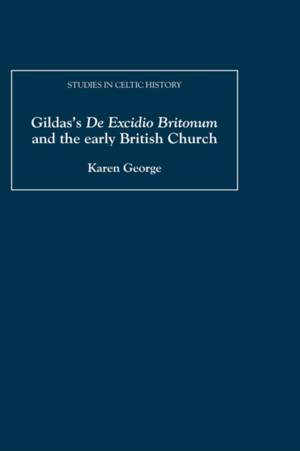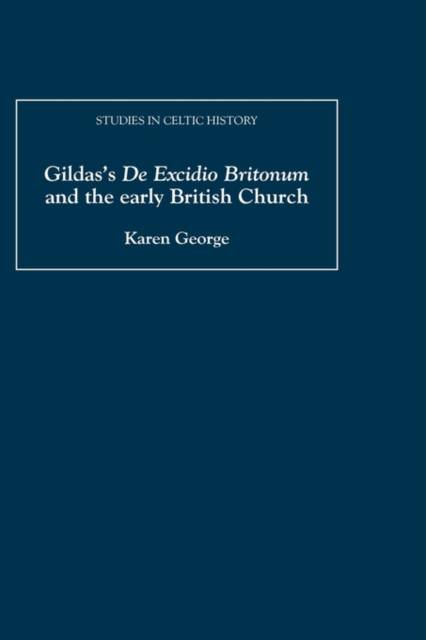
- Afhalen na 1 uur in een winkel met voorraad
- Gratis thuislevering in België vanaf € 30
- Ruim aanbod met 7 miljoen producten
- Afhalen na 1 uur in een winkel met voorraad
- Gratis thuislevering in België vanaf € 30
- Ruim aanbod met 7 miljoen producten
Zoeken
Omschrijving
Gildas's 'De excidio Britonum' is a rare surviving contemporary source for the period which saw the beginning of the transformation of post-Roman Britain into Anglo-Saxon England. However, although the 'De excidio' has received much scholarly attention over the last forty years, the value of the text as a primary source for this fascinating if obscure period of British history has been limited by our lack of knowledge concerning its historical and cultural context. In this new study the author challenges the assumption that the British Church was isolated from its Continental counterpart by Germanic settlement in Britain and seeks to establish a theological context for the 'De excidio' within the framework of doctrinal controversy in the early Continental Church. The vexed question of the place of Pelagianism in the early British Church is re-investigated and a case is put forward for a radical new interpretation of Gildas's own theological stance. In addition, this study presents a detailed investigation of the literary structure of the 'De excidio' and Gildas's use of verbal patterns, and argues that his use of the Bible as a literary model is at least as significant as his well-documented use of the literary techniques of Classical Latin. Dr KAREN GEORGE is currently a tutor at the Cambridge Institute of Continuing Education.
Specificaties
Betrokkenen
- Auteur(s):
- Uitgeverij:
Inhoud
- Aantal bladzijden:
- 212
- Taal:
- Engels
- Reeks:
- Reeksnummer:
- nr. 26
Eigenschappen
- Productcode (EAN):
- 9781843834359
- Verschijningsdatum:
- 19/02/2009
- Uitvoering:
- Hardcover
- Formaat:
- Genaaid
- Afmetingen:
- 160 mm x 236 mm
- Gewicht:
- 498 g

Alleen bij Standaard Boekhandel
+ 354 punten op je klantenkaart van Standaard Boekhandel
Beoordelingen
We publiceren alleen reviews die voldoen aan de voorwaarden voor reviews. Bekijk onze voorwaarden voor reviews.








